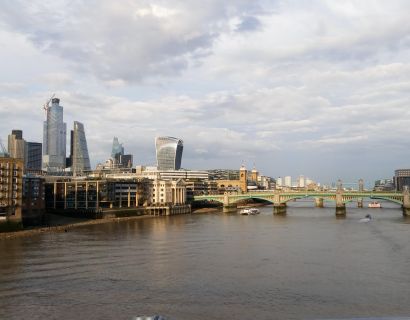Everything for  Business
Business
 Business
Business
 Business
Business
Britain's economy is already in recession as the cost-of-living crisis has devastating effects on household incomes, the leading think tank has concluded.

Britain's economy is already in recession as the cost-of-living crisis has devastating effects on household incomes, the leading think tank has concluded.
A dismal assessment by the National Institute of Economic and Social Research found that average real disposable incomes will fall by an unprecedented 2.5% this year and remain 7% below pre-Covid levels through 2026.
"The UK economy is heading towards a period of stagflation with high inflation and recession hitting the economy at the same time," said Stephen Millard, NIESR's deputy director for macroeconomics.
It is estimated that by 2024, the number of households living from paycheck to paycheck will nearly double to 7 million, including 5.3 million without any savings. They will be forced into debt or arrears as rising electricity bills eat up revenues, the group said.
The recession warning, which the NIESR said began this quarter and will continue until early 2023, is a stark reminder of the challenges facing the two contenders vying to replace Boris Johnson as prime minister. Economists said the depth of the crisis would force the government to respond, suggesting that instead of approaching financial management in the past, a specific goal was required.
He also noted calculations showing that the economic gap between London and the rest of the UK is widening. This suggests that the government's flagship policy of "leveling off" the less affluent areas is failing.
The think tank suggested the UK's most vulnerable need further help in the face of consumer price inflation, which it said would rise to almost 11% this year. Meanwhile, retail price inflation — a broader measure used to set up train fare increases and government interest spending — will reach 17.7%, the highest since 1980.
In response, he sees the Bank of England raising interest rates to 3% next year. Unemployment will rise above 5% as demand falls, according to forecasts.
"It is now up to the Monetary Policy Committee to make sure that inflation does come down next year and the new chancellor will support those households that have been hit hardest by the recession and lower cost of living," Millard said.
 As the U.S. IPO market languishes, listings head east to booming China.
As the U.S. IPO market languishes, listings head east to booming China.
 Pound sterling rises as traders ponder the agenda of new British Prime Minister Truss
Pound sterling rises as traders ponder the agenda of new British Prime Minister Truss
 Central Banks in Jackson Hole Take Tougher Mission Ahead
Central Banks in Jackson Hole Take Tougher Mission Ahead
 Bitcoin continues to retreat as the 200-week average focuses again
Bitcoin continues to retreat as the 200-week average focuses again
 Private investors buy up retail real estate as major players remain cautious
Private investors buy up retail real estate as major players remain cautious
This site uses cookies and other visitor identifiers for the convenience of each user. If you stay on our site after reading this message, it means that you have no objection to the use of these technologies. Learn more
